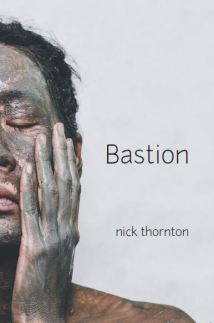 After nearly nine years of start-stop work, I finally received a proof copy of my novel ‘Bastion’ last week. Originally I just wanted to do a little writing exercise, with the sole purpose of fleshing out a very underdeveloped character in The Tempest: Miranda. As I wrote, the character became more and more her own and a story began to unfold that a lot of the time felt like it was telling itself to me, rather than me writing it. I don’t mean for this to sound high-minded or waxing poetic of me because in my experience, writing is a largely mechanical and tedious process that requires much more excavation and editing than it does actual story-telling. I mean simply that stories are things that live inside and outside of us and for something to “be right” requires a lot of patience and stick-with-it-ness that can be totally soul destroying at times.
After nearly nine years of start-stop work, I finally received a proof copy of my novel ‘Bastion’ last week. Originally I just wanted to do a little writing exercise, with the sole purpose of fleshing out a very underdeveloped character in The Tempest: Miranda. As I wrote, the character became more and more her own and a story began to unfold that a lot of the time felt like it was telling itself to me, rather than me writing it. I don’t mean for this to sound high-minded or waxing poetic of me because in my experience, writing is a largely mechanical and tedious process that requires much more excavation and editing than it does actual story-telling. I mean simply that stories are things that live inside and outside of us and for something to “be right” requires a lot of patience and stick-with-it-ness that can be totally soul destroying at times.
I learned a lot of things along the very long and winding way of writing this book and I thought I’d share some of them here.
- Your ideas are good. Not mine, yours. It’s remarkably easy for me to feel like a tiny spark is something worthy of putting into the world- that is largely based on being socialized as a white male for much of my life. So if you need permission, here it is: go forth with the blind confidence of a mediocre white man. I’m not blowing smoke. Write the damn thing because the world needs it. Does the world need another Shakespeare re-telling? Probably not but mine is queer so please forgive the derivativeness.
- Stick with it. Most ideas don’t come to fruition simply because we let go of them. Have the gumption to follow a project through. I’m notorious for starting things and I think there is great validity in shelving and scrapping projects. But if you feel like there’s something there, see it through. Who cares how long it takes, it’s yours. Just get it done.
- Don’t lose the plot. Or have one to begin with. Early drafts of this book had lots of character development but the story was still somewhat elusive to me and I can now admit that there was very little in the way of a “so what” for the book. It took a lot of time to develop properly and was by far the most painful part of the process which resulted in years worth of re-writes and edits. It taught me the value of discipline and having a reason however, and now the book has a bloody point to it after all.
- Collaborate. Your ideas are only ever going to be so good inside your own head. Get lots of different types of people to read your work and give you feedback. Don’t defend your work against criticism… instead sit with it and swirl it around and really consider it. This was a hard lesson for me to learn because I thought I had a clear and singular vision of what this story was. I was incredibly wrong and the story is infinitely better because of the feedback and ideas from others.
There’s plenty more I could write but I wanted to stress a few bigger picture lessons. Really, at the end of the day, I concede I know far less about writing than I thought I did and sometimes there’s great things to be learned from working on a project across several stages of life.
If for some wild reason you would like to read ‘Bastion,’ you can purchase your copy here. (Vancouver orders only at this time).